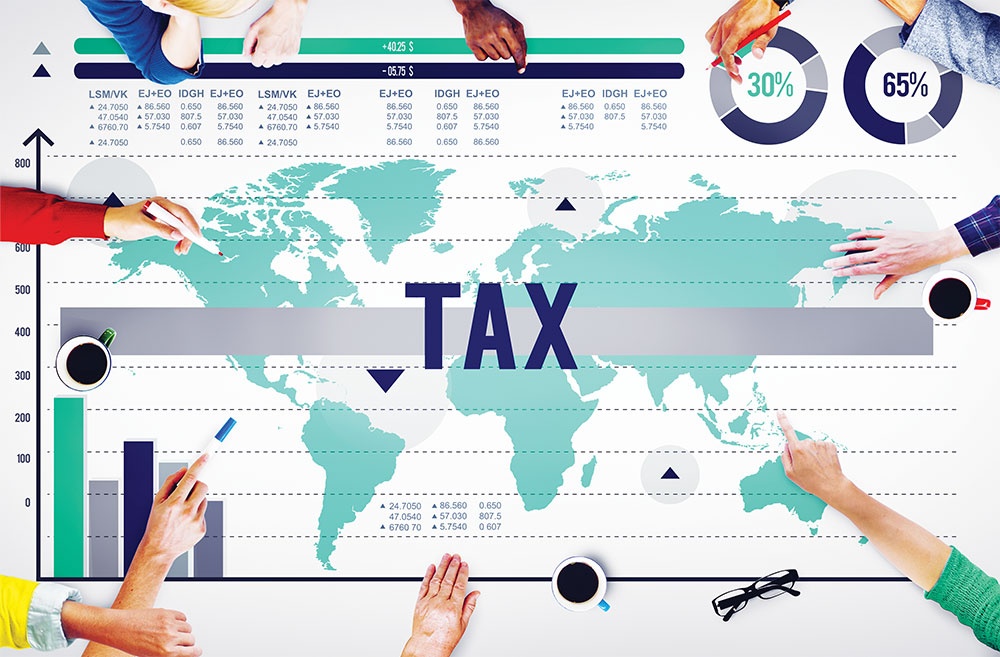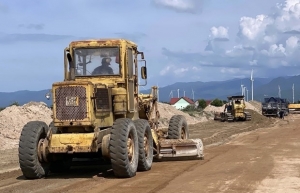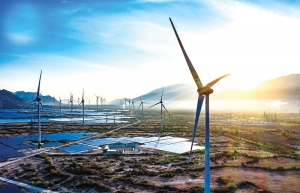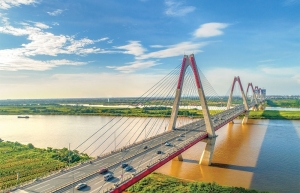Aspects to maintain investment edge
Huge projects in Vietnam from big global names such as Samsung, Intel, Microsoft, and more, have contributed to the formation of a number of key industries of the economy from agriculture and retail to electronics and financial services.
 |
| Aspects to maintain investment edge, Photo: Shutterstock |
Besides the achievements obtained, however, there are certain challenges that Vietnam may face that need to be circumvented in order to maintain a competitive edge in attracting foreign investment.
The upcoming global minimum tax (GMT) has been initiated by the Organisation for Economic Co-operation and Development for the purposes of resolving potential tax risk arising from the digitalisation of the economy within the domestic tax base erosion and profit shifting strategy.
GMT is currently a hot topic globally and for Vietnam as well. This policy comes from developed countries originating large investment capital and has been approved by 141 countries and territories, including Vietnam. Starting from 2024, certain countries will apply a minimum of the GMT rate of 15 per cent for large companies with revenue of €750 million ($817.68 million) or more.
If their subsidiaries enjoy an effective tax rate of less than 15 per cent in countries they are making investments in, the countries where their parent companies are headquartered will be subject to a top-up tax on the difference between the GMT rate of 15 per cent and the effective tax rate in the recipient countries. The policy is estimated to generate over $150 billion in global corporate income tax (CIT) annually.
Firstly, this policy could remove favourable CIT incentives from current eligible projects invested in Vietnam, which is in contrary to the principle of investment business guarantees in the event of changes of laws stipulated under the regulations on investment.
According to Article 13.2 of the Law on Investment 2020, if there is a new law or policy which provides less favourable investment incentives than those previously having been enjoyed by an investor, such investor shall be entitled to keep enjoying the current incentives for the remaining period of the incentive enjoyment of the project.
Under the current tax laws, many projects that now enjoy a preferential CIT rate of zero (full exemption), 5 per cent (half deduction of preferential tax rate of 10 per cent) and 10 per cent, shall all be raised to the GMT rate of 15 per cent.
Secondly, Vietnam’s efforts to attract foreign investment through CIT exemption and reduction will lose their effectiveness and Vietnam’s investment environment could become less attractive to foreign investors. Until now, Vietnam has relied heavily on tax exemption and reduction incentives as competitive edge to attract large-scale investments, so with the GMT of 15 per cent, such tax policies are no longer attractive.
Apparently, Vietnam’s government is facing a dilemma. On one hand, under the GMT scheme, countries where the parent companies are headquartered may collect tax benefits enjoyed by oversea subsidiaries (for example, projects invested in Vietnam) which enjoy a preferential tax rate below the GMT rate.
If Vietnam does not take timely actions, Vietnam could lose the right to collect tax income generated from projects invested in Vietnam to the countries where parent companies are located. On the other hand, if GMT is adopted in Vietnam without a mechanism to compensate invested projects having been enjoying incentives, there will be conflicts among the laws on investment and CIT, and also a reduction of country competitiveness.
Labour cost rise
In recent years, Vietnam’s government has continuously prescribed regulations to gradually increase the statutory minimum wages of employees in Vietnam. From 2015 to 2022, subject to the location, regional minimum wages have increased by an average of around 7 per cent each year.
With the gradual increase in the minimum wage over the years, the total salary funds of enterprises, including entities having capital originated from foreign direct investment will also increase correspondingly, notwithstanding the respective increase in social insurance contributions and other mandatory insurance schemes.
In another aspect, the quality of Vietnamese employees is also fairly a questionable matter. Upon the Total Workforce Index 2022, most Vietnamese labourers are of a low skill level (only 11.6 per cent of highly skilled workers) with the average monthly salary of employees is $275.
While a gradual increase in labour cost is necessary to guarantee a livelihood, it is also important to improve the quality and skill of labour to maintain productivity of employers.
Creaking global supply chains
Lately, a series of international events including the Ukraine conflict with Russia and China-US trade issues have disrupted the global supply chain. Consequences of such disruptions have been reflected in the rapid and high increase in production costs, which contribute to the increasing worldwide inflation. Cost increasing pressure will also remain if the majority of cheap outsourced labour is replaced by high-waged local labour.
As a member of several important bilateral and multilateral free trade agreements with a large scale and a particularly favourable geographical position with a long coastline, Vietnam appears to be one of the most favourite destinations for investment shifts from the likes of China. The total registered foreign capital into Vietnam in 2022 reached nearly $27.72 billion, the disbursement reached a record $22.4 billion, increased by 13.5 per cent compared to 2021, which clearly shows that foreign investors have a high level of confidence in Vietnam’s role in the global supply chain.
Nevertheless, due to the relative size between China and Vietnam, especially in terms of supporting industries and level of development, it is challenging for Vietnam to absorb many projects that are being relocated from China.
Facing the current context, Vietnam needs to have appropriate countermeasures to prevent and limit risks, take advantage of opportunities of the trend of global supply chain shifts, and realise the aspiration for rapid and sustainable development.
 |
| Samuel Son-Tung Vu and Hai Anh Pham, lawyers at Bae, Kim & Lee Vietnam |
 | Investment of 304.3 million USD proposed to upgrade Mekong Delta roads The Ministry of Transport has proposed projects to upgrade and improve three national highways, 53, 62 and 91B, in Cuu Long (Mekong Delta) provinces. |
 | Indian travel companies seek investment opportunities in Ninh Thuan Representatives of Indian travel companies are joining a Famtrip delegation to Ninh Thuan to seek tourism cooperation opportunities in the south-central coastal province. |
 | Ideas rendered for precarious renewables position Luring investment into renewable energy in Vietnam will only happen if revised policies are crafted, industry leaders have insisted. |
 | Resolving the remaining issues in infrastructure investment I first came to Vietnam when the US embargo on Vietnam was lifted in February 1994. Freshfields decided to open an office in Vietnam to focus on infrastructure development and foreign investment work. At the time, Vietnam’s electricity supply was inadequate. |
What the stars mean:
★ Poor ★ ★ Promising ★★★ Good ★★★★ Very good ★★★★★ Exceptional
Related Contents
Latest News
More News
- Citi economists project robust Vietnam economic growth in 2026 (February 14, 2026 | 18:00)
- Sustaining high growth must be balanced in stable manner (February 14, 2026 | 09:00)
- From 5G to 6G: how AI is shaping Vietnam’s path to digital leadership (February 13, 2026 | 10:59)
- Cooperation must align with Vietnam’s long-term ambitions (February 13, 2026 | 09:00)
- Need-to-know aspects ahead of AI law (February 13, 2026 | 08:00)
- Legalities to early operations for Vietnam’s IFC (February 11, 2026 | 12:17)
- Foreign-language trademarks gain traction in Vietnam (February 06, 2026 | 09:26)
- Offshore structuring and the Singapore holding route (February 02, 2026 | 10:39)
- Vietnam enters new development era: Russian scholar (January 25, 2026 | 10:08)
- 14th National Party Congress marks new era, expands Vietnam’s global role: Australian scholar (January 25, 2026 | 09:54)

 Tag:
Tag:



















 Mobile Version
Mobile Version